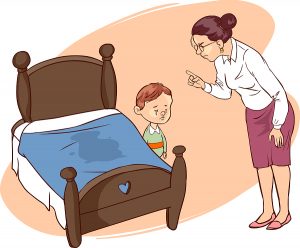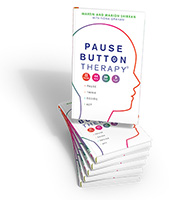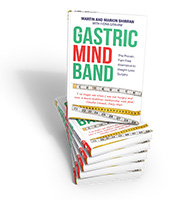Bed Wetting Treatment – CBT
Bed-wetting (Enuresis)- end your child’s suffering today…
Cognitive Behaviour Therapy underpinned by Clinical Hypnotherapy has proven to be valuable in the treatment of mono symptomatic nocturnal enuresis (bed-wetting) in children, and has the advantage of being completely non-invasive with no side effects. during the course of just a few sessions It focuses on empowering the children to take control of their own bodily functions.
Hypnotherapy is also of value in the management of nocturnal enuresis associated with day-time symptoms, such as urgency with or without incontinence, and can also be used to enhance the efficacy of treatments like enuresis alarm systems.
Why Hypnosis for Bed Wetting?
Cognitive Hypnosis is not a panacea, but is an excellent first-choice treatment for mono symptomatic nocturnal enuresis, the most common type seen by general practitioners.
Research Document: Banerjee S. Srivastav A. Palan BM. Hypnosis and self-hypnosis in the management of nocturnal enuresis: a comparative study with imipramine therapy. (Taken from the American Journal of Clinical Hypnosis.
Various therapeutic modalities have been used for treating enuresis due to the lack of a single identifiable cause. We carried out a comparative study of imipramine and direct hypnotic suggestions with imagery used for the management of functional nocturnal enuresis. Enuretic children, ranging in age from 5 to 16 years, underwent 3 months of therapy with imipramine or hypnosis.
After termination of the active treatment, the hypnosis group continued practicing self-hypnosis daily during the follow-up period of another 6 months.
How Successful are Bed Wetting Treatments?
Of the patients treated with imipramine, 76% had a positive response (all dry beds); for patients treated with hypnotic strategies, 72% responded positively. At the 9-month follow-up, 68% of patients in the hypnosis group maintained a positive response, whereas only 24% of the imipramine group did.
Hypnosis and self-hypnosis strategies were found to be less effective in younger children (5-7 years old) compared to imipramine treatment. The treatment response was not related to the hypnotic responsivity.
 Treatment for Bed Wetting
Treatment for Bed Wetting
From The Mayo Clinic – Most children outgrow bed-wetting on their own. If treatment is needed, it can be based on a discussion of options with your doctor and identifying what will work best for your situation.
If your child isn’t especially bothered or embarrassed by an occasional wet night, lifestyle changes — such as avoiding caffeine entirely and limiting fluid intake in the evening — may work well. However, if lifestyle changes aren’t successful or if your child develops anxiety about wetting the bed, he or she may be helped by additional treatments.
If found, underlying causes of bed-wetting, such as constipation or sleep apnea, should be addressed before other treatment.
Lifestyle and home remedies
Here are changes you can make at home that may help:
-
- Limit fluids in the evening. It’s important to get enough fluids, so there’s no need to limit how much your child drinks in a day. However, encourage drinking liquids in the morning and early afternoon, which may reduce thirst in the evening. But don’t limit evening fluids if your child participates in sports practice or games in the evenings.
- Avoid beverages and foods with caffeine. Beverages with caffeine are discouraged for children at any time of day. Because caffeine may stimulate the bladder, it’s especially discouraged in the evening.
- Encourage double voiding before bed. Double voiding is urinating at the beginning of the bedtime routine and then again just before falling asleep. Remind your child that it’s OK to use the toilet during the night if needed. Use small night lights, so your child can easily find the way between the bedroom and bathroom.
- Encourage regular toilet use throughout the day. During the day and evening, suggest that your child urinate every two hours or so, or at least often enough to avoid a feeling of urgency.
- Prevent rashes.To prevent a rash caused by wet underwear, help your child rinse his or her bottom and genital area every morning. It also may help to cover the affected area with a protective moisture barrier ointment or cream at bedtime. Ask your pediatrician for product recommendations.
Coping and support
Children don’t wet the bed to irritate their parents. Try to be patient as you and your child work through the problem together. Effective treatment may include several strategies and may take time to be successful.
- Be sensitive to your child’s feelings. If your child is stressed or anxious, encourage him or her to express those feelings. Offer support and encouragement. When your child feels calm and secure, bed-wetting may become less problematic. If needed, talk to your pediatrician about additional strategies for dealing with stress.
- Plan for easy cleanup. Cover your child’s mattress with a plastic cover. Use thick, absorbent underwear at night to help contain the urine. Keep extra bedding and pajamas handy. However, avoid the long-term use of diapers or disposable pull-up underwear.
- Enlist your child’s help. If age-appropriate, consider asking your child to rinse his or her wet underwear and pajamas or place these items in a specific container for washing. Taking responsibility for bed-wetting may help your child feel more control over the situation.
- Celebrate effort. Bed-wetting is involuntary, so it doesn’t make sense to punish or tease your child for wetting the bed. Also, discourage siblings from teasing the child who wets the bed. Instead, praise your child for following the bedtime routine and helping clean up after accidents. Use a sticker reward system if you think this might help motivate your child.
With reassurance, support and understanding, your child can look forward to the dry nights ahead.

As you will read on other pages of this site, at we have been helping people overcome a number of different problems for many years. Whist we continue to offer both on-line and face to face sessions, over the years we have invested a considerable amount of both time and finances creating a cutting edge and very successful distance treatment programme, using Medias such as Zoom, Face Time and Skype. We can also arrange treatment in the comfort and security of your own home, and of course at a fraction of the normal costs. You can read more here.
Contact US. Should you have any additional questions regarding the treatment provided by Martin and Marion Shirran, do feel free to drop us an email, we will be pleased if requested to call you back for an informative conversation –
UK Tel: 020 3769 5692 – Spain Tel: 0034 951 311 591. Contact us by email here
 National and International Home Visits – From day one, Martin and Marion have offered their unique range of treatment packages to clients around the world in their own homes, for details, prices please feel free to contact them direct by phone or email.
National and International Home Visits – From day one, Martin and Marion have offered their unique range of treatment packages to clients around the world in their own homes, for details, prices please feel free to contact them direct by phone or email.
UK Tel: 3769 5692 – Spain Tel: 0034 951 311 591. Contact us by email


Over the last fifteen years, Martin and Marion Shirran, have been featured in just about every UK National Newspaper, and in hundreds of magazines, including titles such as Vogue, Marie Claire and Psychologies Magazine. They were flown to New York where their work was the subject of a news special on the Good Morning America TV show. They have also appeared in numerous UK shows. Recently they were interviewed by Holly Willoughby and Philip Schofield on the This Morning TV Show. You can read more in the News Section of this site.
 During 2012, Martin and Marion signed a Multi Title International publishing contract with the renown Hay House Publishing
During 2012, Martin and Marion signed a Multi Title International publishing contract with the renown Hay House Publishing  House in New York. There first two , best selling books are available globally from Amazon. The forward of the Pause Button Therapy book was written by Professor Philip Zimbardo of Stanford University in Dan Fransisco. The books were also endorsed by Professor Windy Dryden of Goldsmiths University London. Visit the Pause Button Therapy Dedicated Web Site
House in New York. There first two , best selling books are available globally from Amazon. The forward of the Pause Button Therapy book was written by Professor Philip Zimbardo of Stanford University in Dan Fransisco. The books were also endorsed by Professor Windy Dryden of Goldsmiths University London. Visit the Pause Button Therapy Dedicated Web Site


 Psychologies magazine dedicated two pages to the new Pause Button Therapy which was developed by Martin and Marion Shirran.
Psychologies magazine dedicated two pages to the new Pause Button Therapy which was developed by Martin and Marion Shirran. Vogue magazine featured the Shirrans’ Gastric Mind Band therapy in the ‘Vogue Beauty’ section in January 2011, commenting on the many testimonials and the short, four-day treatment time.
Vogue magazine featured the Shirrans’ Gastric Mind Band therapy in the ‘Vogue Beauty’ section in January 2011, commenting on the many testimonials and the short, four-day treatment time. “Pause Button Therapy is wonderfully simple, but simply effective.” Stelios N. Georgiou. Professor of Educational Psychology. University of Cyprus
“Pause Button Therapy is wonderfully simple, but simply effective.” Stelios N. Georgiou. Professor of Educational Psychology. University of Cyprus “The new concept of PBT developed by the Shirrans addresses the vital moment of decision making in all of our lives.” Nick Clements, author of ‘The New Ages of Men’
“The new concept of PBT developed by the Shirrans addresses the vital moment of decision making in all of our lives.” Nick Clements, author of ‘The New Ages of Men’ “The Shirrans have developed a simple but powerful form of therapy that has the potential to change lives for the better.” Lynn Crilly, author and counsellor
“The Shirrans have developed a simple but powerful form of therapy that has the potential to change lives for the better.” Lynn Crilly, author and counsellor